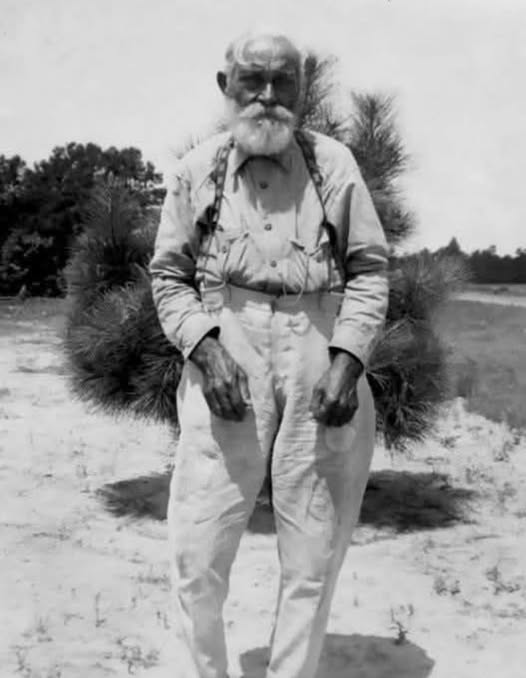Preely Coleman, born into slavery, died in Tyler in 1935 at the age of 85. He was born in 1852 in New Berry, South Carolina, but when he was only a month old, he and his mother were sold and brought to Texas. They settled near Alto, where Preely spent most of his life. Here’s what he said, recorded by the WPA:
“I’m Preely Coleman, and I never tire of talking. Yes, ma’am, it’s Juneteenth, but I’m staying home because I’m too old to go to the celebrations. Where was I born? I know exactly because my mother told me countless times. I was born on the old Souba place in South Carolina, about ten miles from New Berry. My mother belonged to the Souba family, but it’s a fact that one of the Souba boys was my father. The Soubas sold my mother to Bob and Dan Lewis, who brought us to Texas with many other slaves. Mother said it took a whole month to reach Alto, our new home.
“When I was a child, I had a pretty good time because there were many children on the plantation. We had races. During the war, soldiers stopped by on their way to Mansfield, Louisiana, to get food and spend the night, and that’s when we had the races. There was a mulberry tree we’d run to, and the soldiers would say, ‘The first one to slap that tree gets a quarter.’ I almost always got there first. I earned many quarters slapping that old mulberry tree!
“So, the children decided to get back at me because I won all the quarters. They threw a rope over my head and started dragging me down the road and the hill. I was nearly choked to death. My only friend, Billy, was fighting to get me loose. They were going to throw me in the big spring at the bottom of the hill, but we met Captain Berryman, a white man. He cut the rope from my neck with his knife and dunked me in the spring until I came to. They never tried to kill me again.
“My mother married John Selman on the way to Texas, without a ceremony, but with her master’s permission. Our masters, the Lewises, lost their place, and then the Selmans bought me and my mother. They paid $1,500 for my mother, and I was included.
“Massa Selman had five cabins in his backyard built in a half-circle. I grew big enough to hoe and then plow. We had to be ready for the field by daylight when the conch shell was blown, and Massa would call out, ‘All hands ready for the field.’ At 11:30, he’d blow the conch again, and we’d eat dinner. At 12:30, we had to be back at work. But Massa wouldn’t allow any work on Sundays.
“Massa Tom made us wear shoes because there were so many snags and stumps that our feet would get sore. They were red russet shoes. I’ll never forget them; they were so stiff at first we could barely stand them. But Massa Tom was a good man, though he loved his drink. He kept a bottle in the center of the dining table all the time, and he’d have a toddy at every meal. We slaves ate under the trees in summer and in the kitchen in winter. We usually had bread in pot liquor or milk, but sometimes honey.
“I well remember when freedom came. We were in the field, and Massa came up and said, ‘You are all as free as I am.’ There was shouting and singing, and before night, we were all on our way to freedom.”
